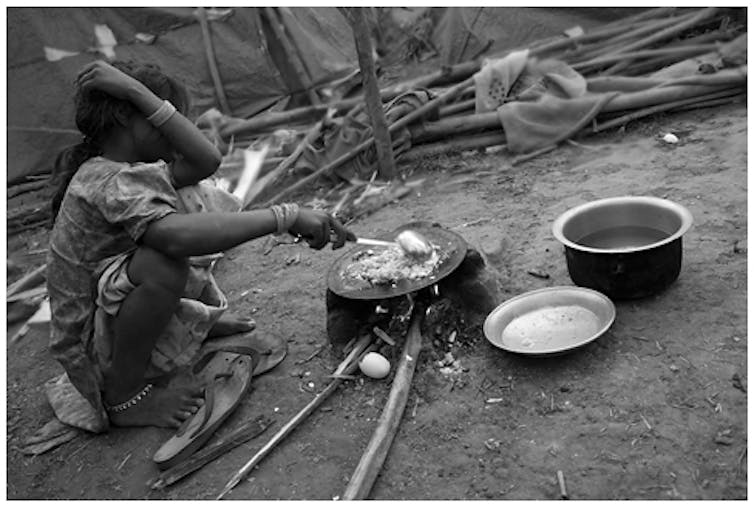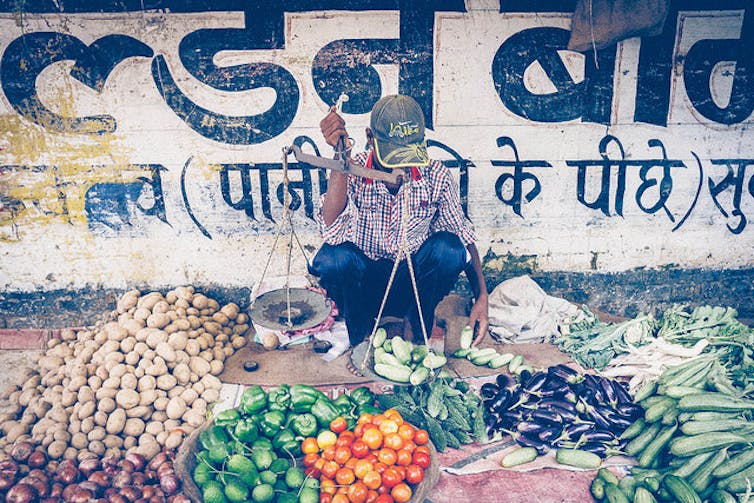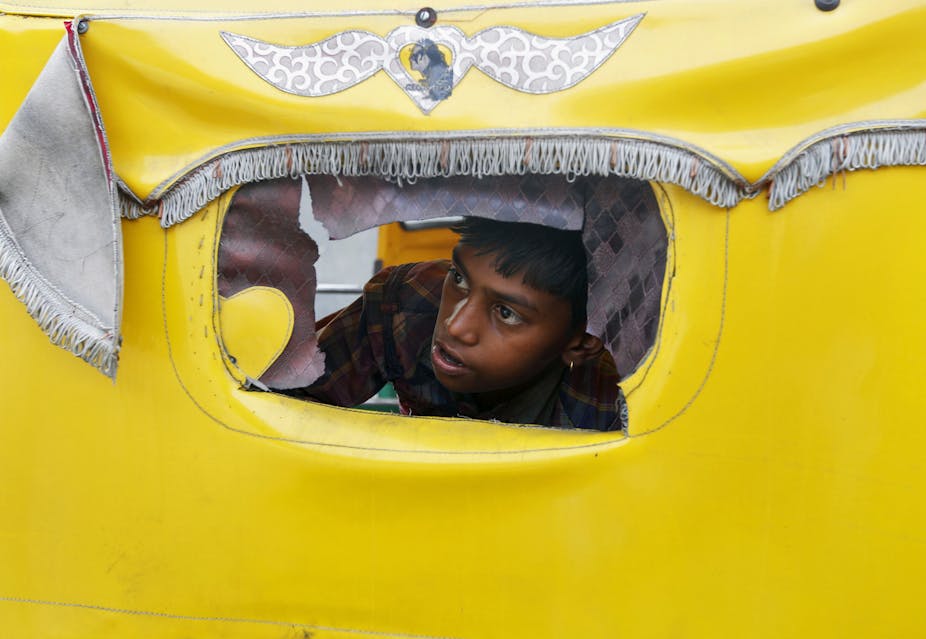In July last year I was in Gandhinagar, the capital of the Indian state of Gujarat, at the monthly meeting of a credit cooperative. It has 1,300 members, all drawn from Dalit families at the bottom of India’s caste hierarchy. It’s the kind of organisation where you might expect to see a host of entrepreneurs and business people in charge, but of the nine board members sitting around the table, just one was a businessperson.
Most are serving or retired civil servants, and the pooled resources of the credit society are used principally for loans for marriage, housing, and higher education. When I asked why there were so few active entrepreneurs, there was an uncomfortable silence, before a torrent of comments revealed the widespread discrimination Dalits face in being able to access credit from both public and private banks. This is casted capitalism at work, or rather, failing to work.
Caste of thousands
The credit cooperative in Gandhinagar is part of a broader Dalit cooperative movement, but it hasn’t solved problems of access to capital, and the realities of business life for Dalits are still harsh. While all sectors are difficult for Dalits to enter into, some are almost completely closed to them, such as owning a restaurant in a non-Dalit area or opening a dairy business, where according to numerous Dalit sources in Gujarat, the dominant caste Patels are preferred.
This discrimination extends into other areas as well, such as medicine, with openly Dalit doctors receiving fewer upper-caste patients. The lone businessman in the group said he did not face problems as a share broker, but it quickly emerged that he dealt with the stigma by adopting the surname Mehta, linked to the well-respected and highly educated professional community in India, the Jains. That way, he explained, clients are automatically more at ease.
In fact, it appears that the price of business success often hinges on staying firmly inside the “Dalit closet”. The sole woman in the group had also encouraged her son to change his surname. If you have a Dalit surname such as Rani, this is not an uncommon scenario.

Other side of the fence
A short distance north of Gandhinagar, in the city of Ahmedabad, I witnessed a similar scene, but this time among the dominant caste Patels. They were meeting, not in a credit cooperative but, in one of their village or “gam” associations. The Patels are dominant politically and economically in Gujarat. Traditionally peasant farmers, they have experienced great social and economic mobility, and are now associated with business sectors such as textiles and diamonds. While the gams predominantly function as sub-caste marriage circles, they also serve as informal business networking associations.
The Kadva Patel gam members stress their internal solidarity and ethos of mutual self-help. Here, young men entering business for the first time can turn to fellow gam members for low interest loans, as well as mentorship and contacts. While a Dalit surname is a potential obstacle in establishing oneself as an entrepreneur, a Patel surname opens doors and indeed is a mark of pride for those who bear it.
There have been success stories for Dalits, and prominent ones at that. Soon after the liberalisation of the Indian economy in 1991, articles began appearing in the Indian and foreign press describing rags to riches stories of Dalits, who against all odds had transformed themselves into wealthy businessmen (and sometimes businesswomen), from very humble beginnings. The tone is often triumphant, alluding to how the free market is liberating Dalits from centuries of oppression, accomplishing in a short period of time what the Indian government failed to achieve through quota systems in the public sector.

This assumption of an inherent meritocracy and “caste blindless” in the free market led some Dalit leaders to argue that capitalism will sound the death knell for the caste system. Some also assert that Dalit entrepreneurship will lead to greater social acceptance as they start to ascend the economic ladder.
This is comforting, but entirely false. The opening of the Indian economy has enabled a small number of Dalit entrepreneurs to make it to the top, but the majority continue to encounter institutional and social discrimination that translates into a share of business ownership that is not proportionate to their population. The 2005 Economic Census shows that Dalits in India own just 9.8% of enterprises despite constituting 16.4% of the population. And the vast majority of these are small single-person businesses.
Free and fair markets
Speaking with dominant business people in Gujarat, it becomes clear that Dalits are seen as untrustworthy, synonymous with government benefits, rather than seen as serious business partners. While it is common in business for caste groups to mistrust each other, Dalits will often not even be considered as potential business partners.
Free financial markets are presumed by some to be great levellers, where ambition and hard work clear away obstacles, but just like all other areas of social life in India, capitalism is profoundly casted. Young Dalit men I spoke with said that many Dalit youth do not even aspire to being an entrepreneur due to a lack of role models in their communities.
Relatively new Dalit organisations, such as the Dalit Chamber of Commerce and Industry, need to be strengthened so that there are more active branches across the country. Ultimately, building the social and economic capital of Dalits across India is a long-term process that needs dedicated government support and deeper grass-roots initiatives that provide networking opportunities and financial support.
Promoting Dalit pride is another important long-term strategy, so that a new generation can visualise a future in which setting up a business does not mean turning their backs on their communities. The idea that the free market will act as an antidote to the caste system is wildly optimistic; it is time to recognise that the market economy’s dominance by upper and locally dominant castes makes business a terrain in which the majority of Dalits struggle to gain a foothold.

